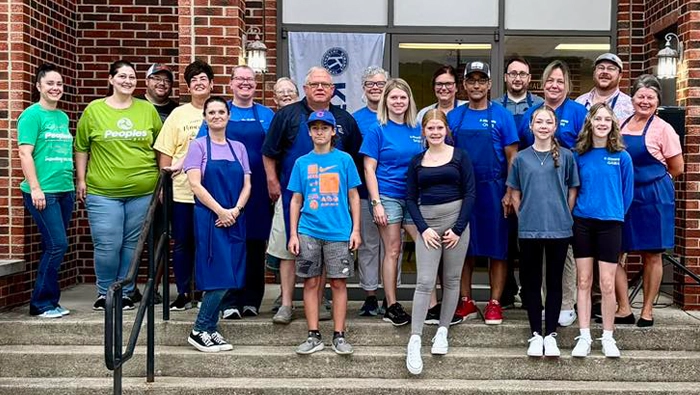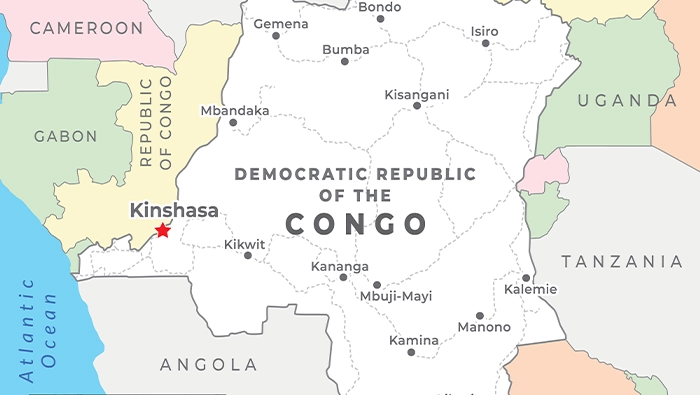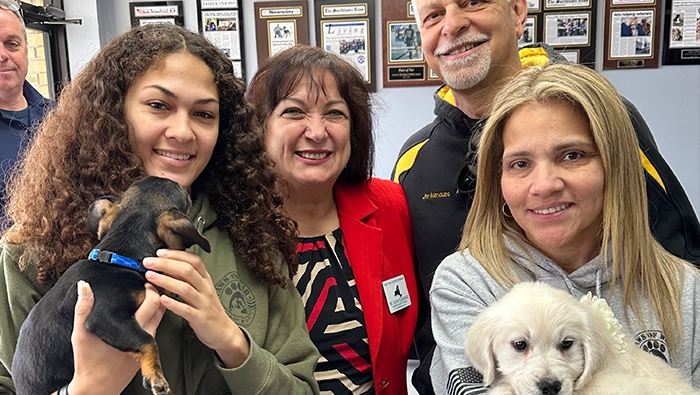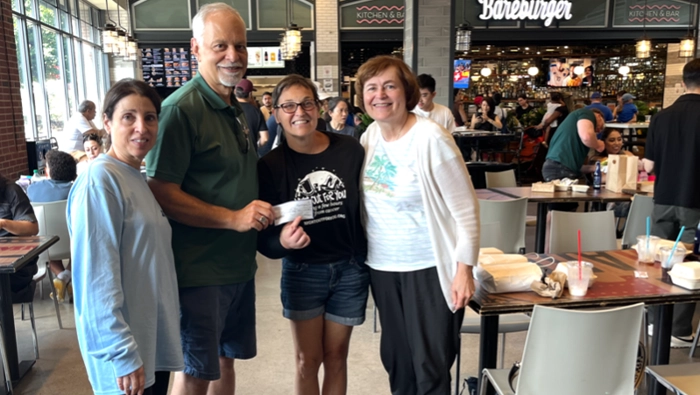
Instant impact in Ironton
A new club in Ohio, U.S., is gaining members and stature in its community.
By Tony Knoderer
It’s been less than a year and a half since the Kiwanis Club of Greater Ironton, Ohio, U.S., held its first meeting, but its members have already figured out a few things about attracting new members — and becoming an integral part of the community.
Rather than reinventing the wheel, the club relied on some tried-and-true concepts. An ambitious fundraising project. Community partnerships. Chartering and sponsorship of a local Kiwanis youth program. In general, an attention to needs and opportunities, and the ability to act on them.
When the Ironton Kiwanians sought out members for the new club, they used local and online means to get people’s attention. But they also benefited from one of the simplest methods of all.
“For me,” says club member Brad Bear, “it was because I was asked. Someone showed up. I had been sort of laterally involved with other groups, but no one actually asked me.”
A simple pitch
While Bear joined because of what he calls the club’s “door-to-door” recruiting, he and his fellow members also credit Kathy Moylan, a Kiwanian and an area coordinator, for setting up a public meeting in September 2023 for people interested in volunteer service.
“I saw a post on social media,” says Sasha Riley, now the club’s treasurer. “When I looked into Kiwanis, I saw it was about serving children. I have a teenager and a preteen, and there wasn’t a lot in Ironton at the time where you could give back to kids in the community.”
In turn, Riley invited Stephan Harris — who is now the club’s president-elect.
“I had moved here not long before I started (with the club),” Harris says. “I had been in a Kiwanis club about 10 to 12 miles down the (Ohio) river, so I wanted to get involved. And I didn’t know that many people here at the time.”
He and Riley both smile when she recalls her pitch to him: “I said, ‘I know a great way for you to meet people.’”
Raising funds for students
Another effective way to get people’s attention, of course, is to work with local schools and do big things for their students. Last year, the Ironton club made an impact by helping Open Door School, a local educational facility that offers services for students whose developmental disabilities are difficult for local schools to accommodate.
Specifically, the club helped raise US$9,000 to help Open Door update its playground and add new swing sets.
“The principal had been aware of Kiwanis, and she reached out,” says Sean Davis, current club president. “So we did an onsite visit and listened.”
It was an especially memorable moment for Stephan Harris.
“My first meeting was when we saw the plans and the pricing,” he says. “It’s an ongoing project, and we had a chance to help accomplish the first phase.”
In addition, the club intends to help with the upkeep of the mulch around the new swing sets every year — with the club’s annual pancake-breakfast event to help with the cost.
Personal connection
The Ironton club’s work with the local educational community didn’t stop there. Like many new clubs, they have used Kiwanis Service Leadership Programs to connect with kids and educators alike — and to serve in ways that expand the Kiwanis family.
For instance, the club is currently working through the chartering process for a new Key Club at Ironton High School.
“Our goal was to reach out to the school and get the ball rolling,” says club president Davis. “Sasha really took the reins. She educated herself and made it happen.”
Riley herself says the potential for a local Key Club was “the reason I joined Kiwanis.”
As so often with Kiwanians, a personal connection sparked the initial interest: Riley’s daughter is a student at Ironton High School. In fact, she’s a member of the school’s color guard. As a result, Riley became aware of a need — and that need became a club opportunity.
When the Ironton High School football team was competing for the state championship, members of the marching band and the color guard got to go with them to Canton, where the finals were played. One catch: Arrangements had been made for the football team to be fed there, but not the others. The club helped fund their meals by raffling game tickets.
For a new club, it was a small but effective way of getting members involved in the community and putting the club’s name into view.
“Our club has done a lot of work getting members out there and networking,” Davis says.
Quite a year
Club members have volunteered at traditional community events, such as a local farmers market, but last November they also showed up at the Ironton WizardFest — an event that attracts thousands of people.
“It’s for the kind of people who love the Harry Potter books and movies,” says Brad Bear, whose involvement with the event made it a natural selling point to his club. “At some point I realized we had more people in our club than were volunteering at this 7,000-person event. You can make yourself visible really quickly. For us, it was a way to make people aware of Kiwanis and what we do. It was a win/win for everyone.”
It was just one of the moments that made 2024 “quite a year,” says club president Davis. “We went from meeting once a month to weekly, and we talked about having a guest speaker every other meeting. It’s going pretty well.”
One key, he adds, is to focus on speakers who are “geared toward serving youth, or at least civic-adjacent.” That includes guests who speak about topics such as food insecurity or work with local branches of programs such as Boys & Girls Clubs and Big Brothers Big Sisters.
“We keep it topical,” Harris says. “It’s not just a new business selling its products.”
A culture of engagement
Located in southern Ohio, near the Ohio River — and near the convergence of Ohio’s border with those of the U.S. states of Kentucky and West Virginia — Ironton offers access to a larger culture of civic engagement. For instance, the Kiwanis Club of Greater Ironton has participated in a quarterly meeting in which members of various volunteer organizations talk about themselves and what they do. The Ironton club even got two new members from the event in December, according to Davis.
The club is particularly looking forward to a “megamixer” in the spring, when Kiwanians can discuss their collective potential impact with members of Lions Clubs, Rotary clubs and others.
Ironton Kiwanians have already seen how powerfully that potential can turn into reality. In November 2024, they worked with two other Kiwanis clubs from Ashland, Kentucky, U.S., as part of a meal-packing project. In one night, the volunteers cumulatively packed 35,000 meals for kids.
“That was a big thing for us,” says Harris. “It showed that our service doesn’t stop at the river.”
Resources for your club
Looking for ways to increase your club’s visibility? Read how important it is to tell your club’s story — and to get the Kiwanis resources that help make it happen. You can also check out how a few Achieving Club Excellence tools can help.



